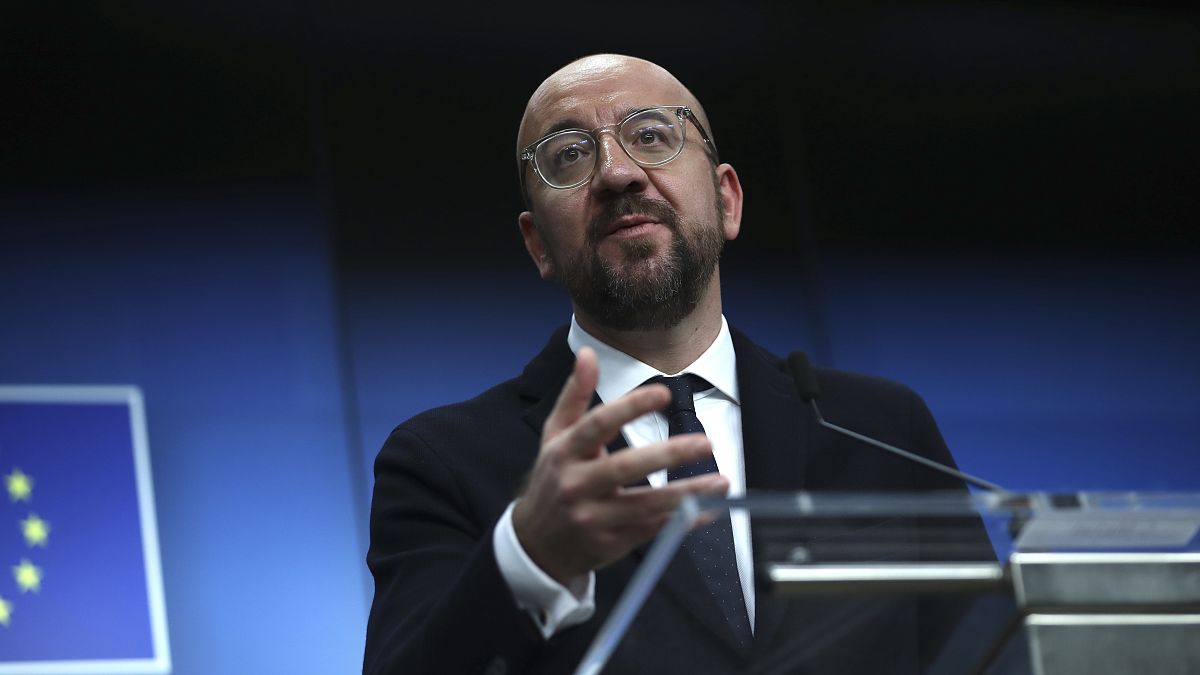The UK PM responded by saying London was 'ready' for negotiations to fail, with time running out for an agreement to be struck.
There was no let-up in the war of words between the EU and the UK on Wednesday, even as talks on post-Brexit ties resumed barely a week before a crucial European summit which is seen as one of the last chances to break the deadlock between the two sides.
In a terse tweet, European Council President Charles Michel said it was "time for the UK to put its cards on the table" after a phone call with Boris Johnson.
"The EU prefers a deal, but not at any cost," he said.
Meanwhile, the British prime minister told the EU leader the UK was "ready" for the transition period to expire at the end of the year with no deal in place, Downing Street said in a statement.
Johnson underlined the UK's "clear commitment" to try to reach an accord, but added the country was ready to trade on "Australian terms" if none was found, the statement added.
Australia has no trade deal with the UK and the phrase refers to World Trade Organization (WTO) rules under which the EU and UK would operate from January in a "no-deal scenario", bringing tariffs, increased costs and other disruptive barriers on both sides of the English Channel.
Last month the prime minister threatened to pull the UK out of the talks unless agreement with the EU was reached by October 15, the date of the EU summit.
The 20-minute phone call enabled both sides to take stock of the negotiations, AFP quoted an EU source as saying. "We continue to insist on an accord which would be good for both sides and we urge the United Kingdom to move, but we are sure of nothing," the source added.
"Better no deal than bad deal," tweeted in English the French Europe minister Clément Beaune, adding in French that the EU's priorities were "clear and firm: fishing, fair competition - and clear rules to enforce the accord".
The three topics are the main sticking points in the stalemate between London and Brussels, more than six months after negotiations began in March.
On fishing, the UK intends to act as an "independent coastal state", controlling its own waters and retaining access to EU markets. The EU wants continued access to British waters and accuses the UK of inflexibility.
In a rare of case of disunity among the EU27 countries, some have reportedly complained that a minority of nations with a close interest in fishing arrangements with the UK -- France, Spain, Belgium, the Netherlands and Denmark -- are being inflexible.
The EU also wants to ensure that British firms cannot undercut the bloc’s environmental or workplace standards, or distort competition via subsidies. It accuses the UK of failing to set out its future regime for state aid to industry.
The two sides have failed to reach agreement on the question of how the agreement will be enforced. The UK rejects the jurisdiction of the European Court of Justice (ECJ) over a future deal.
The UK left the EU last January 31 on the terms of the binding divorce deal struck last autumn and ratified by both sides.
Significant changes will kick in on January 1, 2021 -- after the 11-month largely standstill transition period expires -- regardless of whether a trade deal is struck. This is because the UK's departure from the EU's Single Market and Customs Union will bring new customs formalities and regulatory controls.
But failure to negotiate an agreement on trade and the future relationship would amplify the friction.
Relations between the two sides have been further soured by the Johnson government's legislative plan to override parts of the deal on arrangements for Northern Ireland, prompting the EU to begin legal action against the UK.
